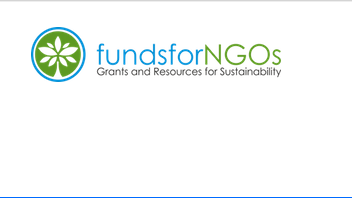The European Commission (EC) is inviting applications to Support the full implementation of the following plans and strategies
- Circular Economy: National or Regional Circular Economy Action Plans, Strategies, Roadmaps or similar, which are officially approved, and which include specific and measurable actions, or targets, with a clear timeline and are in line with or complementing the objectives of the EU Circular Economy Action Plan.
- Waste: National and regional Waste Management Plans pursuant to Article 28 of the Waste Framework Directive and/or Waste Prevention Programmes as requested by article 29 of the Waste Framework Directive.
- Water: River basin management plans pursuant to Annex VII to the Water Framework Directive, Flood Risk Management Plans pursuant to the Floods Directive or Marine Strategies pursuant to the Marine Strategy Framework Directive.
- Air: Air quality plans pursuant to the Ambient Air Quality Directive or National Air Pollution Control Programmes pursuant to the National Emission Ceilings Directive.
Scope
- SIPs should aim at the full implementation of the strategies and plans. This might not mean that the SIP will cover all actions foreseen in the strategy/plan or that the strategy/plan will be fully implemented during the lifetime of the SIP. However, the SIP shall include strategic actions to catalyse a process and mobilise supplementary commitments and funding that will lead, in due time, to the full implementation of the plan or strategy.
- SIPs shall promote the coordination with and mobilisation of other relevant Union, national or private funding sources for the implementation of the complementary measures or actions outside of the SIP in the framework of the targeted plan or strategy, giving preference to EU funding. Within the SIP itself, however, co-funding may not come from other EU funding sources.
- SIPs shall actively involve the main stakeholders necessary for the implementation of the targeted plan or strategy. They should be involved in both the design and implementation of the given project. This involvement is expected to be achieved by including them – where possible and reasonable – as associated beneficiaries of the SIP, or through their active participation in the implementation of the SIP itself and/or of the complementary actions.
- SIPs should facilitate and result in the building up of strategic capacities among the competent authorities and stakeholders to ensure a long-term sustainability of project results and actions, and to ensure that they will be able to function as co-deliverers of the targeted plan or strategy during or after the end of the SIP.
- The SIP complexity requires an adaptive approach in the design of the implementing mechanism. For this reason, SIPs will be implemented based on a revolving programming mechanism structured in phases (i.e. Phase 1, Phase 2, etc.). Each phase should normally last at least 3 years, to reduce administrative burden, although duration might be shorter if properly justified.
Funding Information
- Topic budget: EUR 52.8 million
- Indicative range of project budgets: EUR 10-30 million
Activities that can be funded
- Circular Economy SIPs: These SIPs shall be designed to support the application, development, testing and demonstration of integrated approaches for the implementation of National or Regional Circular Economy Action Plans, Strategies, Roadmaps or similar.
- Waste SIPs: These SIPs shall be designed to support the application, development, testing and demonstration of integrated approaches for the implementation of the WMPs as required by Article 28 of the Waste Framework Directive and/or WPPs as requested by Article 29 of the Waste Framework Directive.
- Water SIPs: The extent to which proposals for Water SIPs contribute to one or several of the general and specific objectives of LIFE.
- Air Quality SIPs: SIPs falling under the thematic priority area of Air shall be designed to support the application, development, testing and demonstration of integrated approaches for the implementation, monitoring and further development of local and regional Air Quality Plans (AQPs)
- Note: Third countries associated to the LIFE Programme: The assessment of each proposal will be done in line with the provisions of the relevant association agreement.
Eligibility Criteria
- In order to be eligible, the applicants (beneficiaries and affiliated entities) must:
- Be legal entities (public or private bodies)
- Be established in one of the eligible countries, i.e.:
- EU Member States (including overseas countries and territories (OCTs)
- Non-EU countries:
- Listed EEA countries and countries associated to the LIFE Programme or countries which are in ongoing negotiations for an association agreement and where the agreement enters into force before grant signature.
- The coordinator must be established in an eligible country.
- Beneficiaries and affiliated entities must register in the Participant Register — before submitting the proposal — and will have to be validated by the Central Validation Service (REA Validation). For the validation, they will be requested to upload documents showing legal status and origin.
- Other entities may participate in other consortium roles, such as associated partners, subcontractors, third parties giving in-kind contributions, etc.
Specific Cases
- Exceptional funding — Entities from other countries are exceptionally eligible, if the granting authority considers their participation essential for the implementation of the action .
- Natural persons — Natural persons are NOT eligible (with the exception of selfemployed persons, i.e. sole traders, where the company does not have legal personality separate from that of the natural person).
- International organisations — International organisations are eligible. The rules on eligible countries do not apply to them.
- Entities without legal personality — Entities which do not have legal personality under their national law may exceptionally participate, provided that their representatives have the capacity to undertake legal obligations on their behalf, and offer guarantees for the protection of the EU financial interests equivalent to that offered by legal persons.
- EU bodies — EU bodies (with the exception of the European Commission Joint Research Centre) can NOT be part of the consortium.
- Associations and interest groupings — Entities composed of members may participate as ‘sole beneficiaries’ or ‘beneficiaries without legal personality’. Please note that if the action will be implemented by the members, they should also participate (either as beneficiaries or as affiliated entities, otherwise their costs will NOT be eligible).
- Countries currently negotiating association agreements — Beneficiaries from countries with ongoing negotiations may participate in the call and can sign grants if the negotiations are concluded before grant signature (with retroactive effect, if provided in the agreement).
For more information, visit European Commission.




